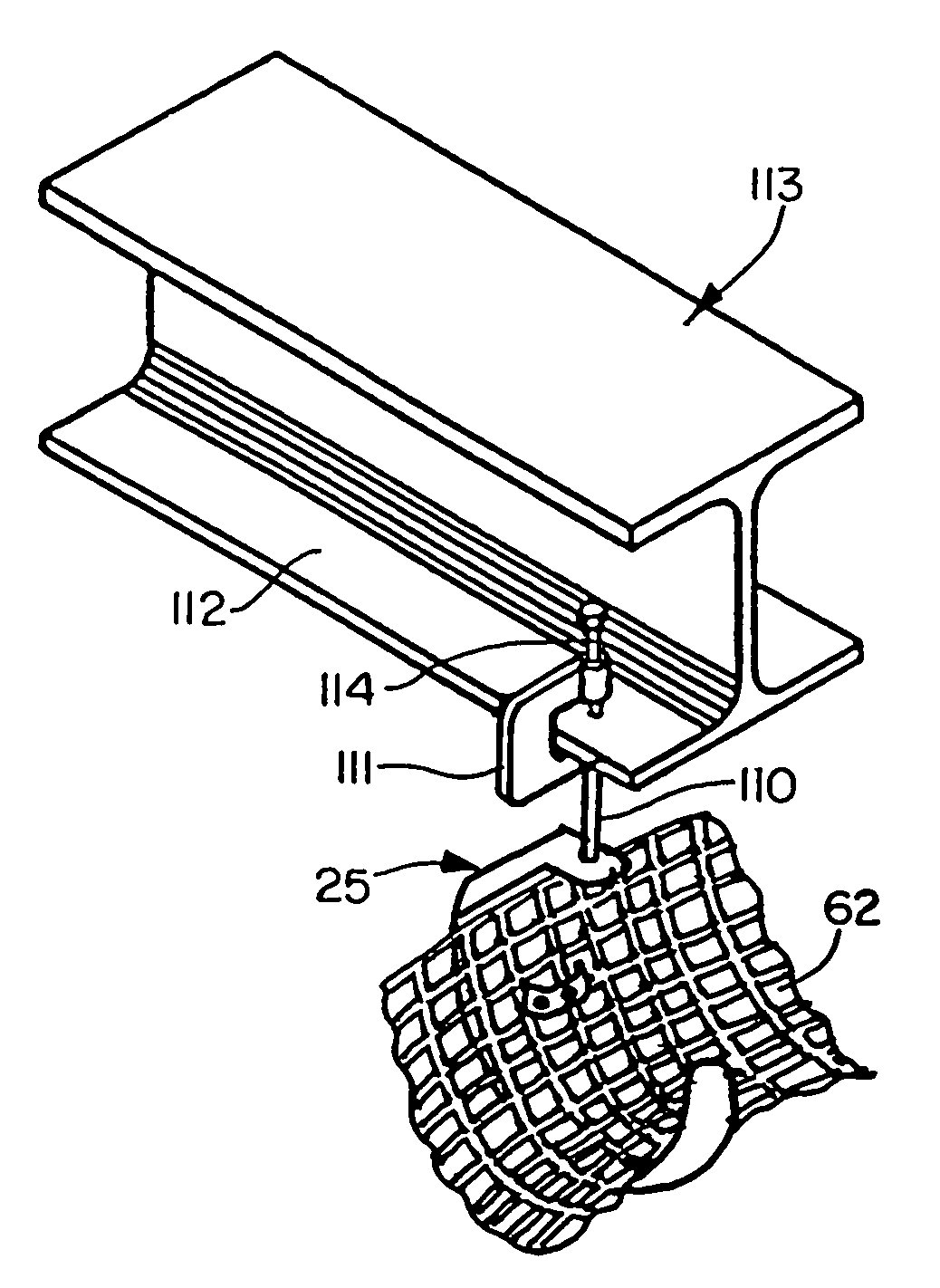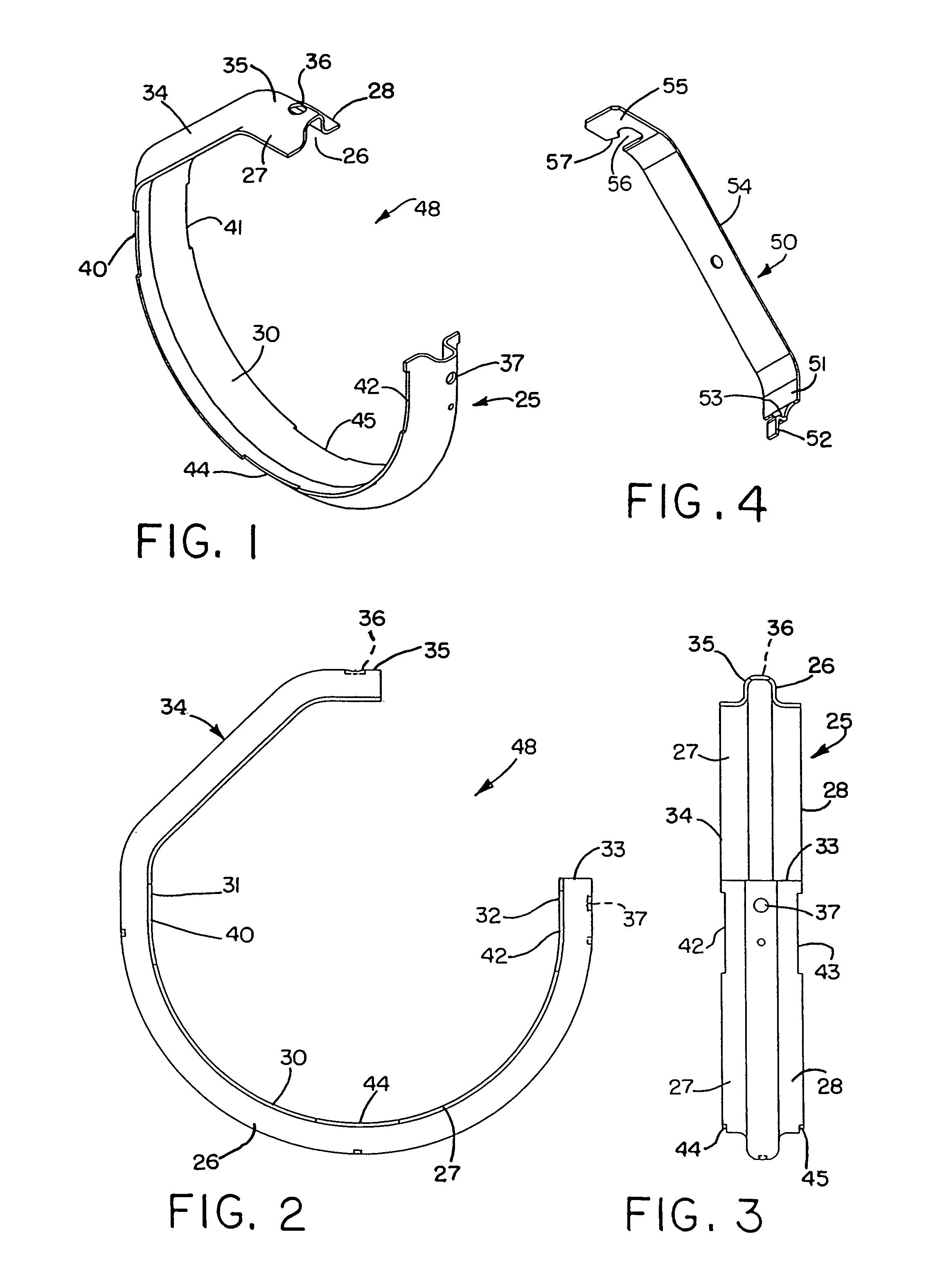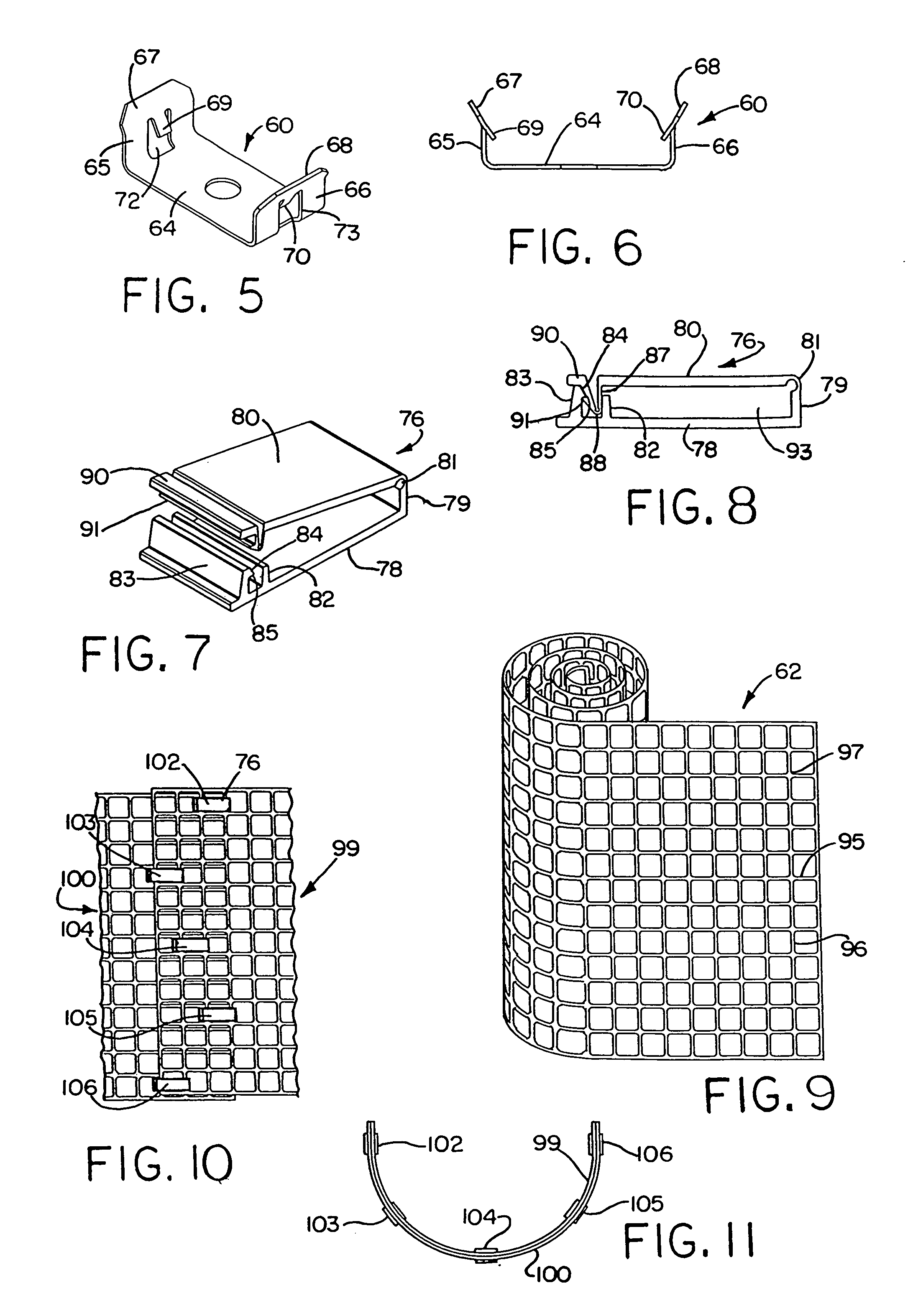Cable support and distribution system and method
- Summary
- Abstract
- Description
- Claims
- Application Information
AI Technical Summary
Benefits of technology
Problems solved by technology
Method used
Image
Examples
Embodiment Construction
[0043]Referring initially to FIGS. 1–3 there is illustrated a primary hanger or bracket shown generally at 25. The hanger may be formed of steel and galvanized. Throughout its length, the hanger is of a substantially uniform channel shape which has a center outwardly extending channel 26 and two relatively long outwardly projecting coplanar flanges 27 and 28 on each side thereof. The bottom of the hanger forms a generally semi-circular upwardly opening trough-shape saddle or support 30 with two straight or vertical portions 31 and 32 on each end thereof. The straight portion 32 terminates at the edge 33 while the straight portion 31 continues upwardly to an angle portion 34 which terminates at the top in a horizontal short section 35. The base of the channel is provided with a top hole indicated at 36.
[0044]The opposite end just short of the edge 33 is also provided with a hole seen at 37 in the base at the center channel. As later described, the primary hanger or bracket may be hun...
PUM
 Login to View More
Login to View More Abstract
Description
Claims
Application Information
 Login to View More
Login to View More - R&D
- Intellectual Property
- Life Sciences
- Materials
- Tech Scout
- Unparalleled Data Quality
- Higher Quality Content
- 60% Fewer Hallucinations
Browse by: Latest US Patents, China's latest patents, Technical Efficacy Thesaurus, Application Domain, Technology Topic, Popular Technical Reports.
© 2025 PatSnap. All rights reserved.Legal|Privacy policy|Modern Slavery Act Transparency Statement|Sitemap|About US| Contact US: help@patsnap.com



